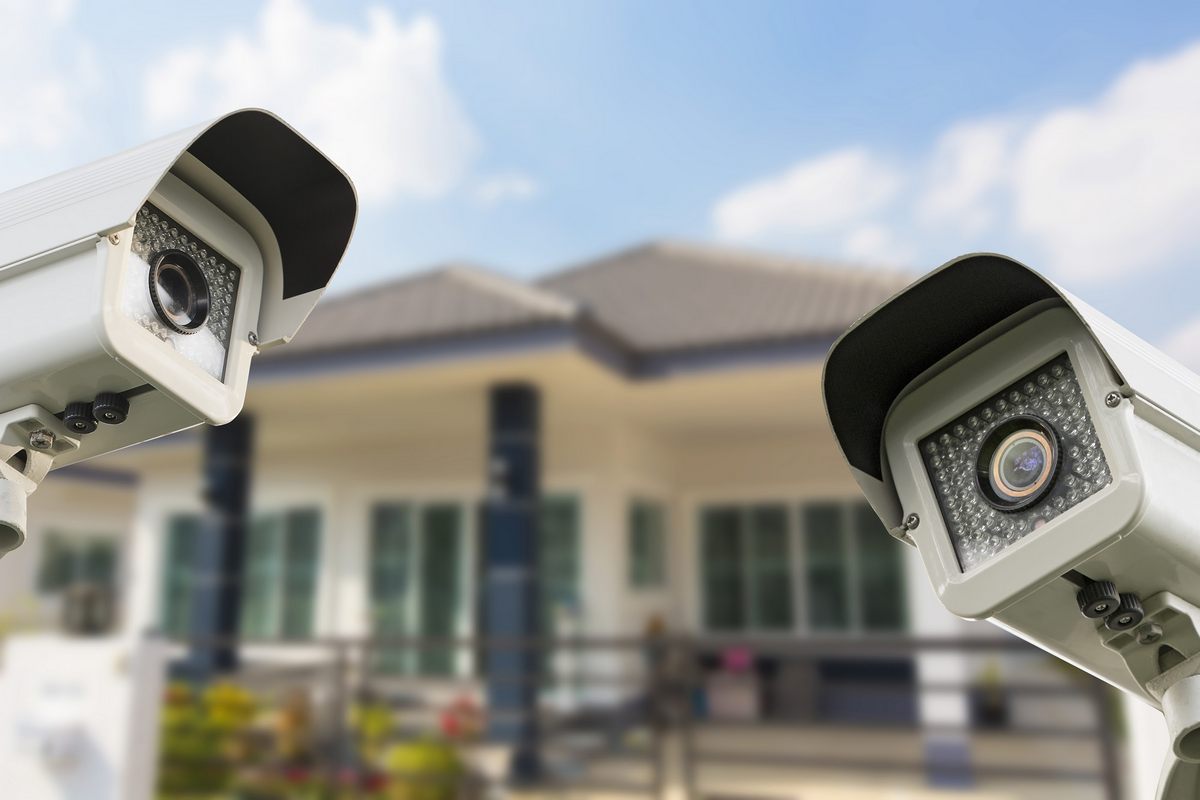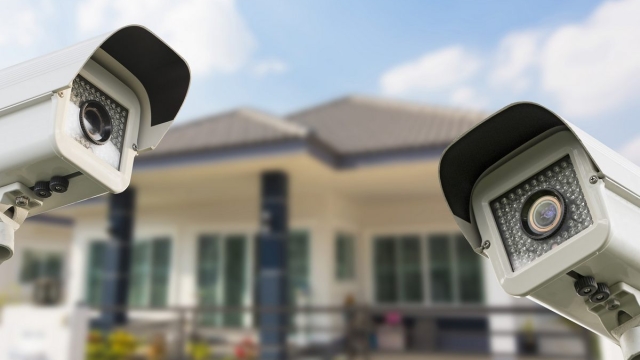
As technology continues to advance, security cameras have become an integral part of our modern society. These unassuming devices, often mounted on buildings, street corners, and even inside our homes, quietly watch over us, providing an additional layer of protection and vigilance. With their ever-watchful gaze, security cameras serve as the eyes in the sky, offering a sense of security and peace of mind in a world that can sometimes feel uncertain.
Security cameras are no longer limited to simple surveillance; they have evolved into intelligent systems that can detect and analyze various activities and behaviors. Equipped with advanced features such as facial recognition and motion detection, these cameras now possess the ability to identify and respond to potential security threats in real-time. By constantly monitoring their surroundings, security cameras serve as a powerful deterrent against crime, ensuring that potential wrongdoers think twice before engaging in illicit activities.
Furthermore, security cameras have proven to be invaluable tools for law enforcement agencies, aiding in the investigation and solving of crimes. With captured footage serving as concrete evidence, these cameras assist authorities in identifying individuals involved in criminal activities, providing crucial support in the pursuit of justice. Moreover, the presence of security cameras can also reduce response times in emergency situations, allowing for immediate action to be taken, potentially saving lives and minimizing damage.
In a world where safety concerns continue to grow, security cameras play a vital role in enhancing security measures and safeguarding our communities. While they may elicit debates surrounding privacy, when used responsibly and ethically, the benefits they offer vastly outweigh any concerns. These unassuming eyes in the sky provide an extra layer of protection, acting as silent sentinels that contribute to the overall well-being and peace of mind for individuals and society as a whole.
Enhancing Surveillance
- Enhanced Safety Measures
The integration of security cameras has revolutionized surveillance techniques, enhancing safety measures to a new level. By capturing real-time footage of our surroundings, these sophisticated devices provide a constant vigilance that ensures a heightened sense of security for both public spaces and private properties.
- Deterrence and Prevention
One of the key advantages of security cameras is their ability to deter and prevent crime. These watchful eyes in the sky act as a formidable deterrent for potential wrongdoers, significantly reducing the likelihood of criminal activities. The mere presence of security cameras can discourage trespassing, vandalism, theft, and other illicit behaviors, protecting individuals and property alike.
Security Camera Repairs
- Rapid Response and Investigation
Security cameras play a crucial role in facilitating rapid response and investigation processes. In case of an incident, the recorded footage can serve as valuable evidence, aiding law enforcement authorities in identifying perpetrators and bringing them to justice. The ability to review past events not only improves response times but also increases the effectiveness of investigations, making security cameras an indispensable tool for maintaining the safety and well-being of our communities.
Remember to provide context and an explanation of the ethical merits of using security cameras in your actual article, as this prompt only requires the specific section to be written.
Deterrence and Crime Prevention
Security cameras play a crucial role in deterring and preventing crime. As a visible deterrent, they significantly reduce the likelihood of criminal activity in areas where they are installed. The mere presence of security cameras can put potential wrongdoers on high alert, prompting them to reconsider illegal actions.
By acting as vigilant eyes in the sky, security cameras constantly surveil their surroundings. This surveillance factor acts as a strong deterrent and discourages individuals from engaging in criminal behavior. Knowing that their actions are being monitored and recorded increases the perceived risk of being caught, leading to a decrease in criminal incidents.
Furthermore, security cameras contribute to crime prevention by providing key evidence for investigations and law enforcement. In the event of a crime, recorded footage from security cameras can be invaluable in identifying perpetrators, gathering evidence, and bringing culprits to justice. This proactive approach not only helps solve crimes swiftly but also acts as a deterrent for potential offenders in the future.
In summary, security cameras have a powerful impact on deterring and preventing crime. With their constant watchful presence and ability to provide crucial evidence, they create an atmosphere of heightened security and decrease the likelihood of criminal activities taking place.
Privacy Concerns and Ethical Considerations
With the increasing prevalence of security cameras in public spaces, it is crucial to address the privacy concerns and ethical considerations associated with their use.
One of the main concerns surrounding security cameras is the potential invasion of privacy. While these cameras are intended to enhance public safety and deter criminal activity, they may inadvertently capture sensitive information about individuals who are unaware they are being monitored. This raises questions about the extent to which our personal lives should be exposed and whether there should be limits on surveillance in public areas.
Another ethical consideration is the risk of misuse or abuse of the data collected by security cameras. If not properly protected, the footage from these cameras can be accessed by unauthorized individuals or used for purposes other than public safety. It is essential to establish strict guidelines and safeguards to prevent the misuse of this information and protect the privacy rights of individuals.
Additionally, there is a concern about the potential for discrimination and bias in the monitoring and surveillance carried out by security cameras. If not properly regulated, these systems may disproportionately target certain groups based on race, gender, or socio-economic status. This raises ethical questions about the fairness and impartiality of the surveillance methods employed, as well as the need for transparency and accountability in their implementation.
As we continue to embrace advancements in security camera technology, it is essential to prioritize privacy concerns and address the ethical considerations associated with their use. Striking a balance between public safety and individual privacy rights will be crucial in ensuring the responsible and ethical deployment of these surveillance systems.
